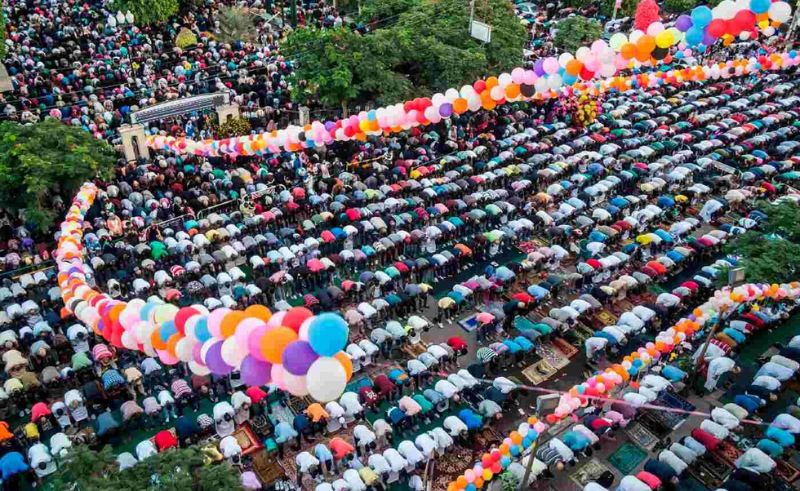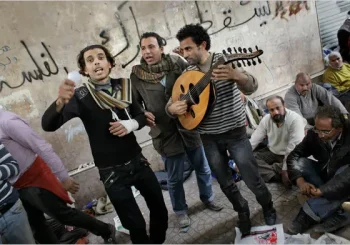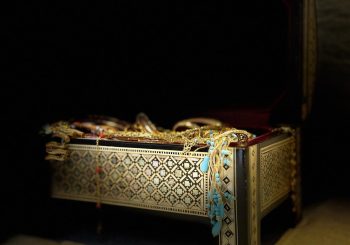Eid al-Adha, a yearly Muslim holiday, serves as a reminder of faith, sacrifice, and community. As families across Egypt prepare to celebrate this significant holiday, the ritual of meat cutting stands at the heart of the festivities. This practice, religiously rooted in the story of Prophet Ibrahim’s (Abraham) willingness to sacrifice his son, symbolizes devotion and the spirit of giving.
The Tradition of Sacrifice
Traditionally, the act of sacrificing cattle and practicing holiday butchery during Eid al-Adha is more than a culinary task; it constitutes a sacred ritual that fosters a sense of belonging and continuity.
Youssef Akram, a 29-year-old dentist from Cairo, captures this sentiment perfectly. “Eating meat during the holidays is sacred to me,” he shares. “It’s a tradition that connects us to our roots.”
Akram reminisces about his childhood, recalling the joy of accompanying his father to the butcher.
“It was one of those bonding experiences. We would choose the best lamb together, and I still cherish those moments.” This connection to family and tradition is a common thread that weaves through the narratives of many Egyptians during Eid.
In cities and villages alike, the butcher becomes a central figure in the holiday preparations. Families often engage with local butchers to ensure they receive the best cuts of meat. This relationship is steeped in trust and familiarity, with many opting for butchers who have served their families for generations.
Once the meat is prepared, it is typically shared within the family, symbolizing unity and celebration. A significant portion of this meat is also distributed to those who cannot afford it, reflecting the spirit of generosity and community that characterizes the holiday.
Planning for the Feast
As the holiday approaches, the excitement builds, especially for families like that of Saad Ibrahim, a 65-year-old street bookseller.
“I save money specifically for Eid to buy meat. It’s a special time for my family—my wife and three children look forward to it all year,” he explains.
Saad describes how he plans the feast, often selecting a large sheep to ensure the quantity is sufficientfor extended family and friends.
“It’s not just about the food; it’s about bringing everyone together. We celebrate with a big feast, and it strengthens our family bonds.”
For Saad, the ritual goes beyond the act of eating.
“We start the day with prayers and then come home to prepare the meal together. The children help, and it’s a chance to teach them about our traditions.” This emphasis on family involvement reflects a broader cultural value placed on education and togetherness during Eid.
Diverse Perspectives on the Celebration
However, Eid al-Adha is not universally celebrated with joy by everyone. Asmaa Shamel, a 35-year-old housewife and vegan, offers a contrasting view.
“For me, Eid is not a celebration,” she says, her voice tinged with concern. “Seeing the butchering of animals on the streets is difficult. I struggle with the idea of sacrificing animals for food.”
Asmaa’s perspective highlights the diverse reactions to the holiday. While many embrace the tradition, others grapple with the ethical implications.
“I understand the cultural significance, but I wish there were alternatives,” she adds.
The ethical concerns surrounding Eid al-Adha are significant. One major issue is the lack of regulation in the butchering of cattle, which can lead to inhumane treatment of animals.
Instances of mistreatment and poor conditions often prompt public outcry and calls for reform. In response, the government has intervened to establish specific areas designated for butchering, aiming to ensure that animals are treated more humanely and that the process is conducted in a safe and sanitary environment.
This shift addresses the ethical concerns raised by individuals like Asmaa and aims to balance tradition with the welfare of animals during the holiday.
This conversation reflects a growing awareness of animal rights and ethical eating in Egypt. As more people like Asmaa express their views, the dialogue around Eid al-Adha continues to evolve, demonstrating how cultural practices can adapt to changing values.
A Mosaic of Celebrations Across Egypt
Eid al-Adha is experienced differently across Egypt’s cities.
Each governorate brings its unique flavors and customs to the celebration. For instance, in Upper Egypt, the traditions may include elaborate communal prayers followed by large gatherings where families share food with neighbors and the less fortunate.
In contrast, urban centers like Cairo see a blend of old and new. Families often travel back to their hometowns for the holidays, rekindling connections with relatives.
The streets of Cairo buzz with excitement as people prepare for the festivities. Markets overflow with fresh produce, and the scent of spices fills the air, creating an atmosphere of anticipation. However, amidst the celebration, it’s important to acknowledge that Eid also brings large congregations, which can lead to unfortunate incidents, including spikes in sexual harassment.
Conversely, some Egyptians escape the hustle and bustle of city life, heading to coastal cities like Alexandria or Hurghada. Here, the celebration takes on a different vibe, blending traditional rituals with leisure. Families gather by the beach, enjoying barbecues and water activities, creating a unique fusion of Eid celebrations and summer fun.







Comments (0)